Results
-
£109.99
Irish Sketches - Luc Gistel
As its title suggests this composition is a musical evocation of Ireland. The original themes of this work are strongly influenced by traditional Irish folk music. Each of the three movements reflects part of the Irish character. Following a solemn introduction the first movement springs into life showing the cheery side of the Irish character. The second movement is a ballad with a simple, natural and peaceful melody that inspires a feeling of fullness.The final movement introduces a lively Irish dance in 6/8 time. This joyous piece is a must for your concert band repertoire.
Estimated dispatch 7-14 working days
-
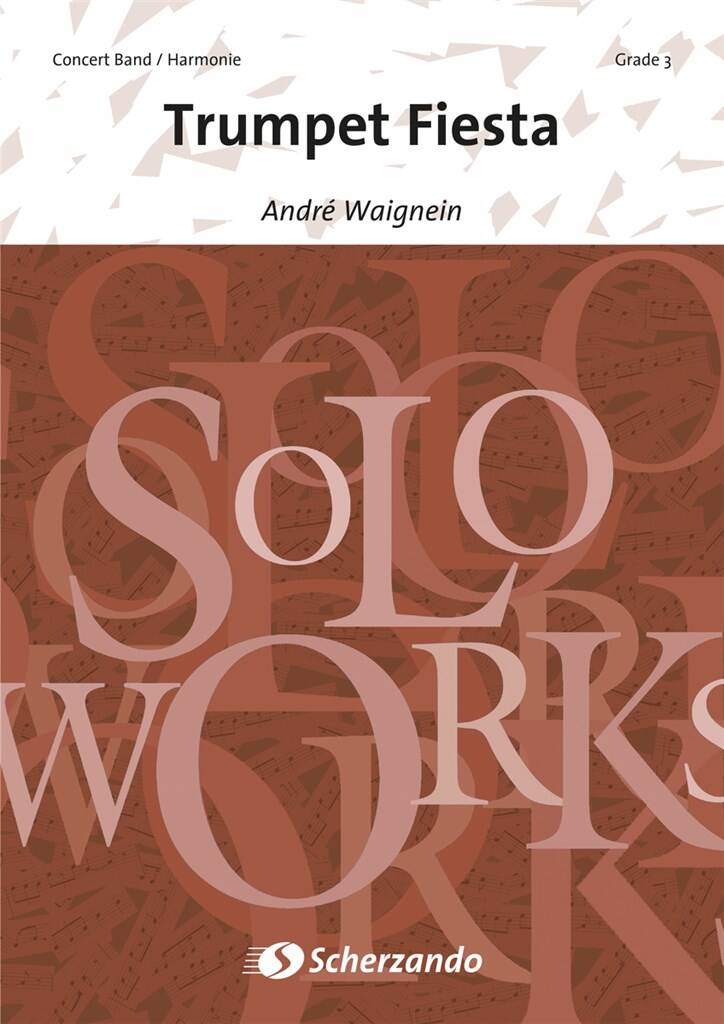 £84.99
£84.99Trumpet Fiesta - André Waignein
Trumpet Fiesta spotlights four trumpet soloists. From the opening bars the music expresses a feeling of happiness. This swift and lively piece begins with a series of dynamic staccato passages from the soloists. The central section, in the minor key, contrasts with the beginning of the work and during this transition period there are only two solo trumpet parts. The first theme then quickly reappears before moving on to a peaceful and more melodic trio in which long and flowing melody lines allow the soloists to let the beautiful sound of the trumpet fully reveal itself. The sound pyramid then formed by the whole band leads this spectacular piece to a powerful finale.
Estimated dispatch 7-14 working days
-
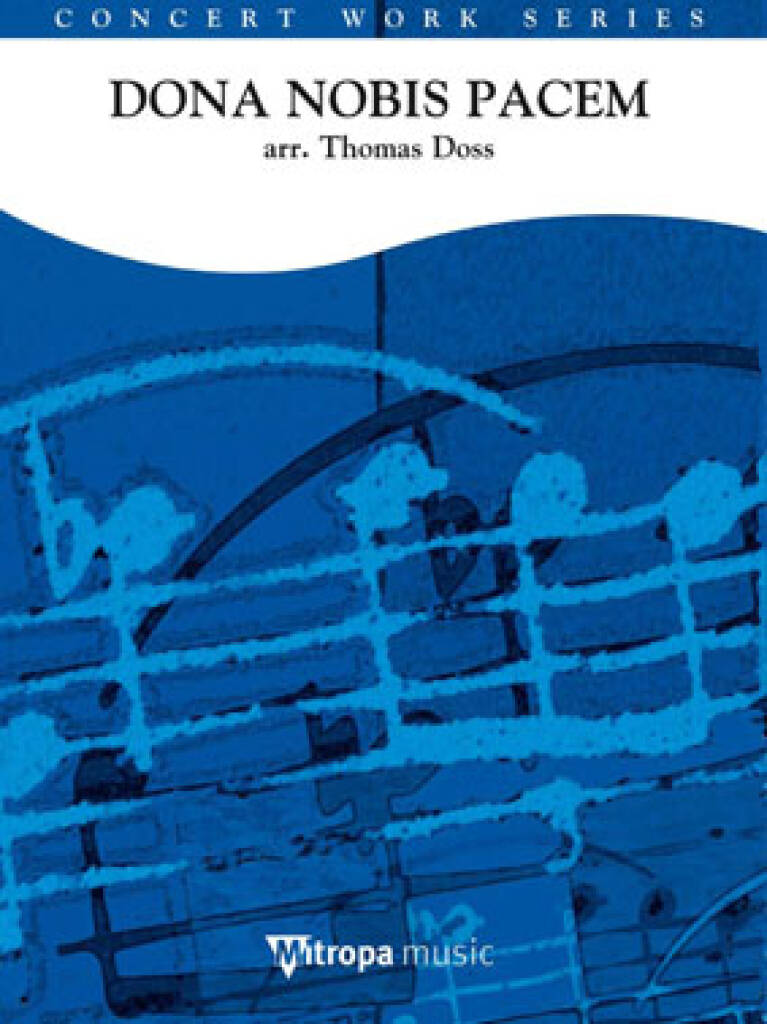 £104.99
£104.99Dona Nobis Pacem - Thomas Doss
Dona Nobis Pacem is a three-part round by an unknown composer. It can be performed for many occasions, both in and outside church, often being used at Christmas. By the time of the holy crusades, this melody was incorporated into the Mass Ordinary (the manual of the holy mass). Dona Nobis Pacem is a free fantasia on this round, which itself naturally forms a part of the piece. If desired you can add vocals (solo or choir) to the band to enhance the spiritual feel of this fantastic work.
Estimated dispatch 7-14 working days
-
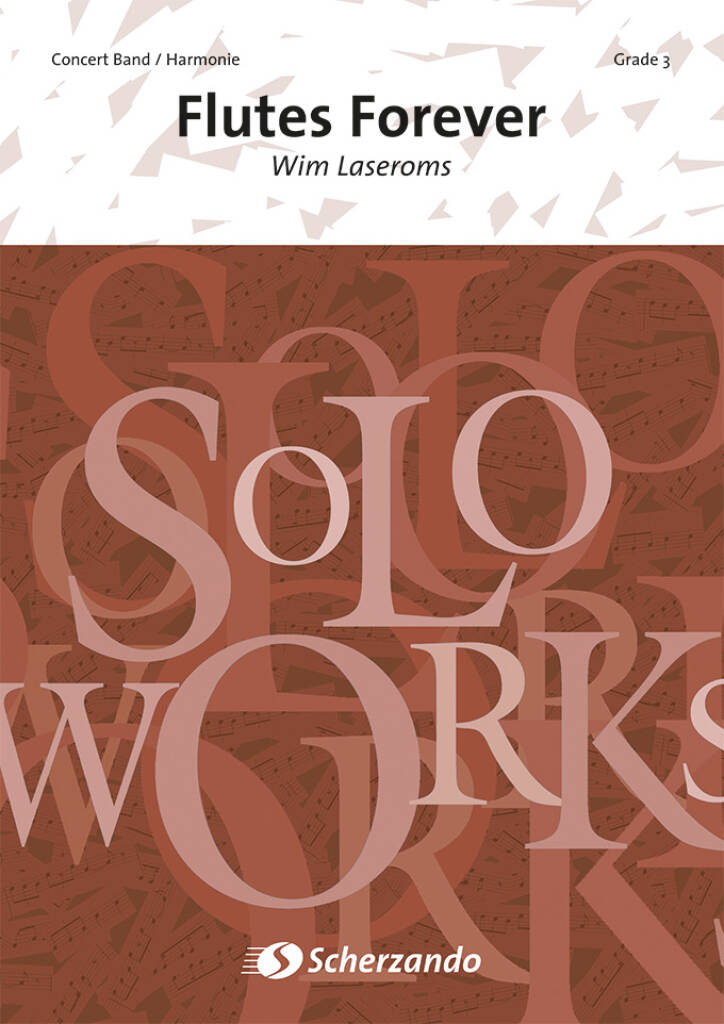 £84.99
£84.99Flutes Forever - Wim Laseroms
As the title implies this new piece brings the flute section into the limelight. Following a fast introduction by the accompanying band, the flute section follows in three-parts with a rapidly syncopated/staccato theme. After a short interlude by the band, this opening theme appears once again. The second flute theme returns following a short passage in which the band and the soloists alternate and the piece comes to a entertaining conclusion. Let your flute section shine with this playful new work.
Estimated dispatch 7-14 working days
-
£69.99
MGB March - Franco Cesarini
The MGB March was commissioned in 2004 by the Swiss railway corporation "Matterhorn Gotthard Bahn" and first performed by the Belalp Concert Band on the occasion of a march music festival. A journey on the Swiss railway can take you through some of the worlds most beautiful scenery with one of the most spectacular journeys being through the Swiss Alps between Zermatt to Disentis and Andermatt to Gschenen. On this journey of less than 100 miles you climb over 3300 meters, run through 33 tunnels, cross 126 bridges and pass through 47 stations en route. This refreshing new march reflects the grand beauty of this fascinating train journey.
Estimated dispatch 7-14 working days
-
 £84.99
£84.99St. Patrick Dances - Johan Nijs
In 432 St. Patrick traveled from Scotland to Ireland and within a few years he succeeded in converting the entire Irish population to Christianity. The bishop died on 17th March 461 and in Ireland, as a tribute to this remarkable bishop, this date became a national holiday called St. Patrick's Day. St. Patrick's Day, symbolized by the shamrock, is one big party with traditional Irish dancing, parades with highly decorated floats, hundreds of concerts and all kinds of colorful characters on the streets. Bring a touch of Irish magic to any concert with this lively composition.
Estimated dispatch 7-14 working days
-
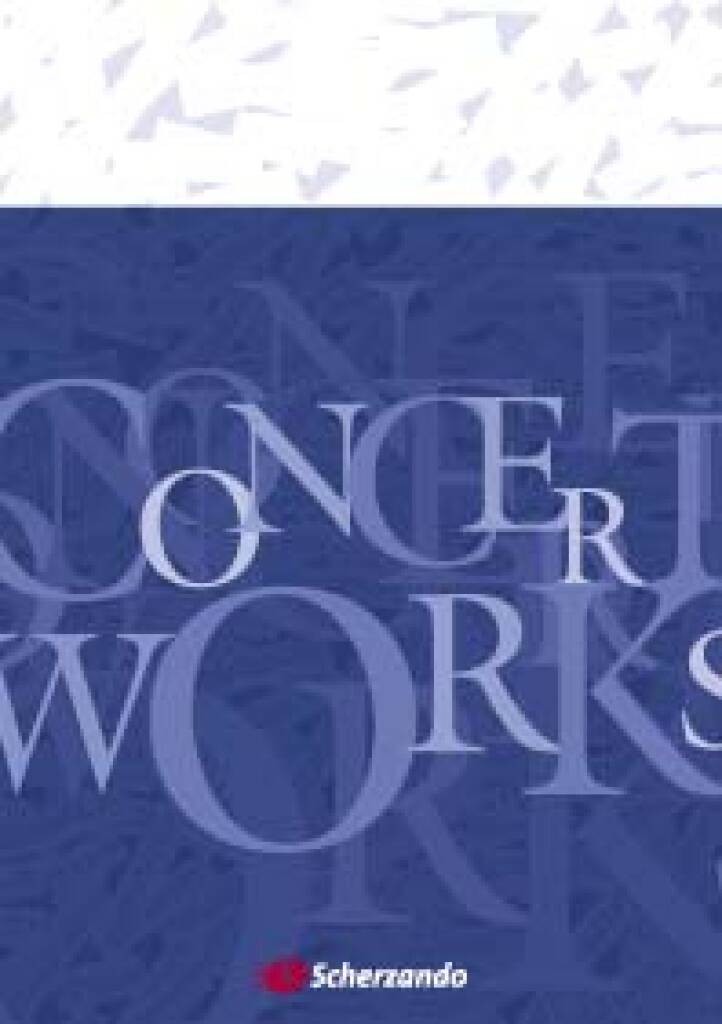 £209.99
£209.99Codon - Kevin Houben
"Codon" is a term used in the field of molecular genetics to describe the interaction between the three elements that are important for both the creation and the preservation of life. Kevin Houben uses this term as a metaphor for the interaction between the conductor, the musicians and the committee of a concert band. They all have the same goal, to preserve the life of the band. This work consists of three movements, symbolising birth, life and death - either of a human being or a band. From the foundation of a band over good and bad times up to the optimistic future, this work will appeal to the soul of every band member in the world!
Estimated dispatch 7-14 working days
-
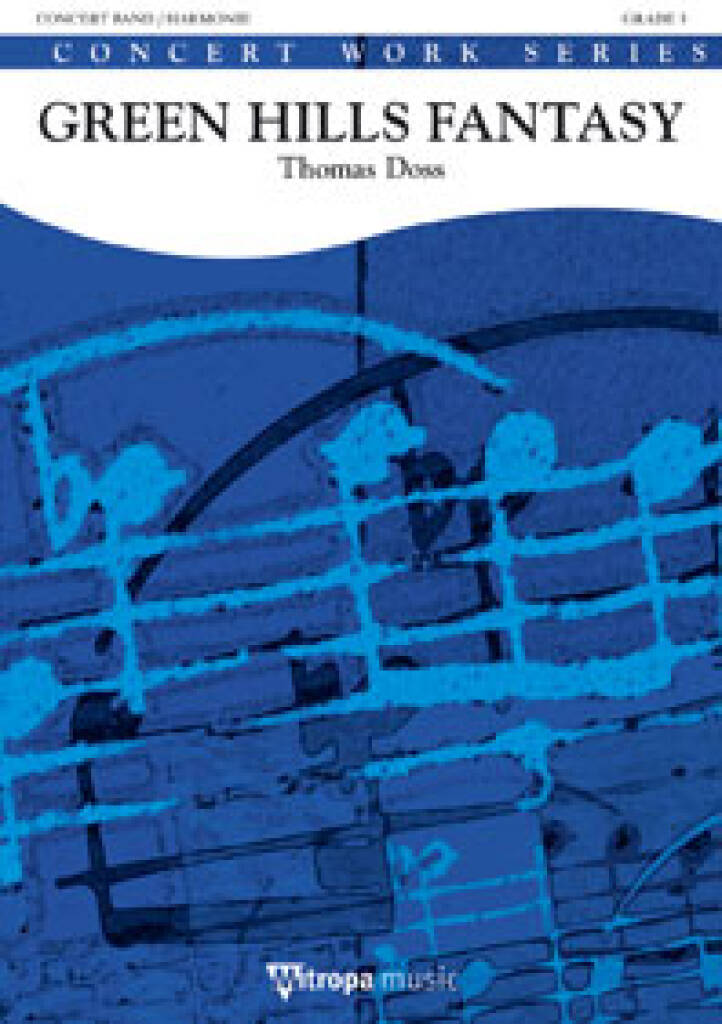 £139.99
£139.99Green Hills Fantasy - Thomas Doss
This composition describes a landscape in the Upper Austrian region of Mhlviertel. This area was once besieged by the Celts, who spread fear and terror among the inhabitants, however the people opposed the enemy with patience and courage. Theiruncompromising love of life demonstrated how unyielding they were and finally, the Celts had to withdraw from Mhlviertel. The region is still one of the most beautiful landscapes in Austria, and the people who live there are proof that tradition andprogress are not necessarily contradictory. Green Hills Fantasy gives you a chance to hear this fantastic landscape immortalized in a wonderful piece for Concert Band.
Estimated dispatch 7-14 working days
-
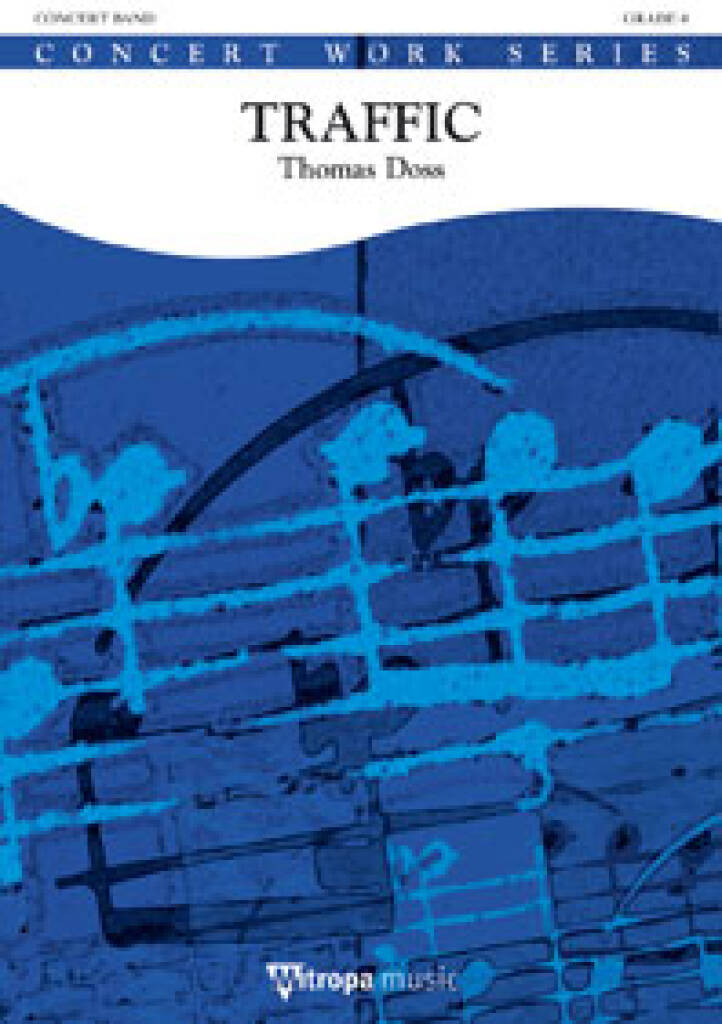 £139.99
£139.99Traffic - Thomas Doss
This piece describes the daily madness of traffic in a city full of cars, noise and exhaust fumes. Even in the countryside the 'monster on four wheels' has already arrived and is destroying idyllic villages. In the middle of the composition, we experience a traffic jam, where some drivers tend to behave in a very primitive way! This work is dedicated to all those who are affected by or are suffering from the overpowering proliferation of traffic. This work will 'drive' your audiences crazy with excitement !!
Estimated dispatch 7-14 working days
-
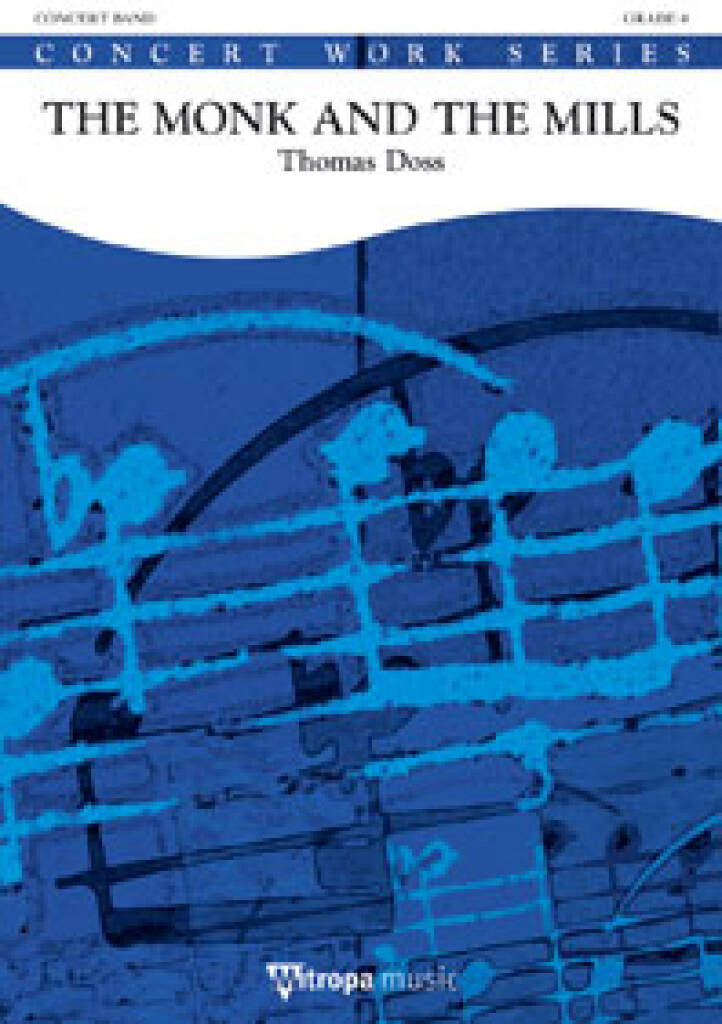 £154.99
£154.99The Monk and the Mills - Thomas Doss
Evil people know no songs! Inspiration for this work was taken from the legend of the "Valley of the Mills", in which a traveller taught songs to the people of a village who had been put under a spell by a monk for their violation of moral standards. He brought song and prosperity back to the valley. It is this enchanting story, which shows the positive power of music, that Thomas Doss used as the basis for this splendid concert work which will be loved by all who perform it and listen to it.
Estimated dispatch 7-14 working days
